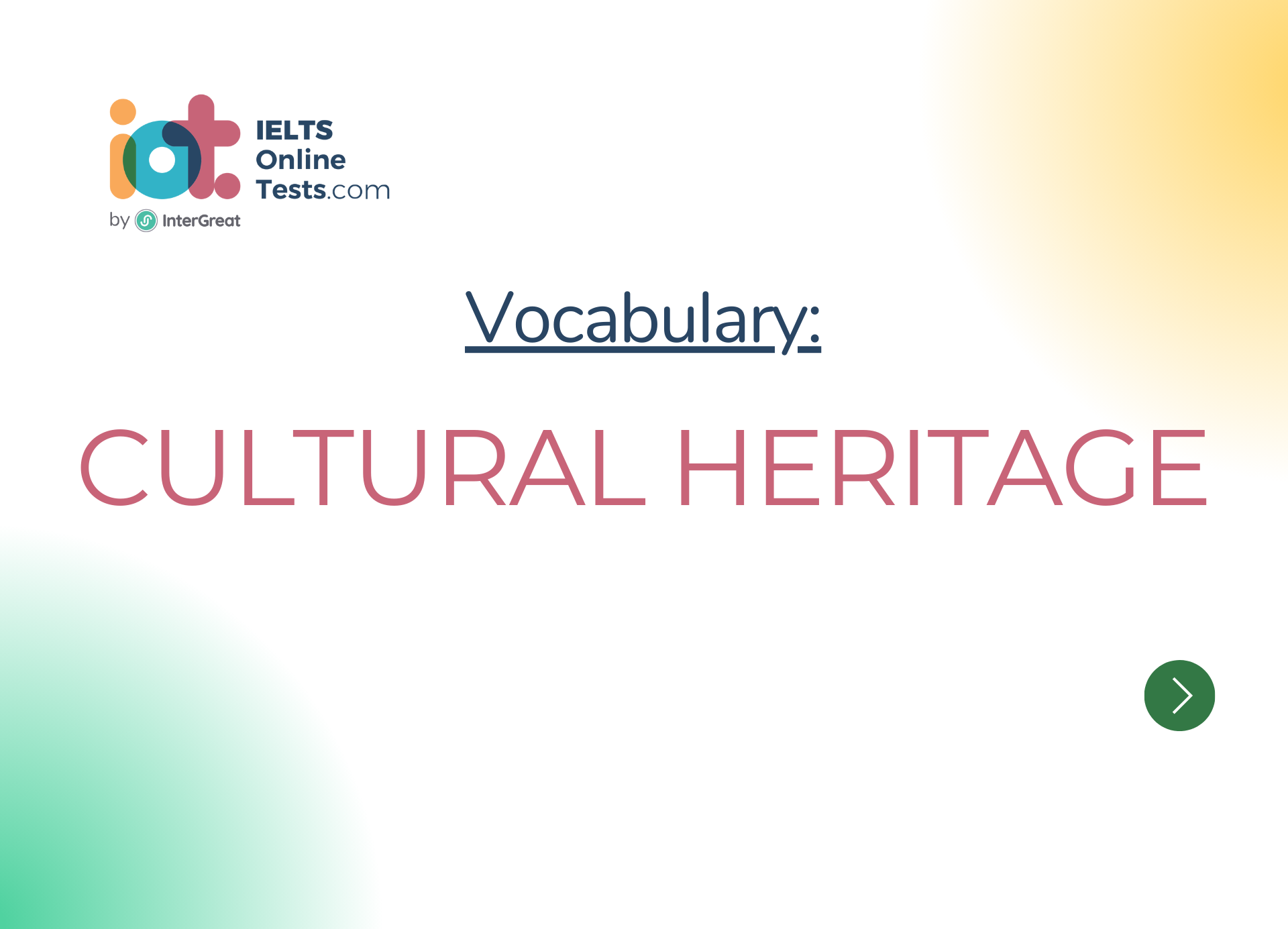
Cultural Heritage
Below is a detailed list of vocabulary related to "Cultural Heritage" suitable for IELTS band 6.5-8.0:
Cultural Heritage:
- Definition: The customs, traditions, practices, objects, and artifacts that are passed down from one generation to another within a society.
Intangible Cultural Heritage:
- Definition: Aspects of cultural heritage that cannot be touched or physically preserved, such as oral traditions, performing arts, rituals, and festivals.
Tangible Cultural Heritage:
- Definition: Physical artifacts and structures that are considered valuable and significant to a culture, including historical sites, artworks, artifacts, and monuments.
Archaeological Sites:
- Definition: Locations where past human activities and remains are preserved, providing important insights into ancient cultures.
Cultural Conservation:
- Definition: Efforts to protect and preserve cultural heritage from damage, decay, or destruction.
Cultural Diversity:
- Definition: The existence of a variety of cultures within a particular region or society.
Cultural Identity:
- Definition: The sense of belonging and connection to a particular cultural group or heritage.
Cultural Revival:
- Definition: Renewed interest and efforts to revive and promote traditional cultural practices and customs.
Heritage Site:
- Definition: A location or area that is recognized and protected for its cultural, historical, or natural significance.
Historical Landmarks:
- Definition: Places with historical significance, often marked by monuments or plaques.
Indigenous Culture:
- Definition: The unique cultural practices and traditions of the original inhabitants of a region.
Cultural Patrimony:
- Definition: Cultural assets and heritage that are considered part of a nation's collective identity.
Cultural Preservation:
- Definition: Actions taken to safeguard and maintain cultural heritage for future generations.
Cultural Restoration:
- Definition: Efforts to repair or rebuild cultural heritage that has been damaged or deteriorated over time.
Cultural Significance:
- Definition: The importance and meaning attributed to cultural heritage by a particular community or society.
Ethnographic Heritage:
- Definition: The study and preservation of the cultural practices and traditions of specific ethnic groups.
National Heritage:
- Definition: Cultural heritage that is considered significant to a nation's identity and history.
World Heritage:
- Definition: Cultural and natural sites that are recognized and protected by UNESCO for their universal value to humanity.
Cultural Exchange:
- Definition: The sharing and interaction of cultural practices and traditions between different societies.
Cultural Integration:
- Definition: The blending and incorporation of different cultural elements into a cohesive whole.
Cultural Relics:
Definition: Objects and artifacts that hold historical and cultural significance.
Preservation Techniques:
Definition: Methods and practices used to conserve and protect cultural heritage.
Cultural Traditions:
Definition: The beliefs, customs, and practices that are passed down through generations.
Cultural Awareness:
Definition: The understanding and appreciation of cultural differences and similarities.
Cultural Celebrations:
Definition: Festivities and events that honor and showcase cultural heritage.
Cultural Documentation:
Definition: Recording and documenting cultural practices and traditions for future reference.
Heritage Conservationists:
Definition: Individuals or organizations dedicated to the preservation and protection of cultural heritage.
Cultural Adaptation:
Definition: The process of adjusting and integrating into a new cultural environment.
Cultural Symbolism:
Definition: The use of symbols and icons to represent cultural ideas and concepts.
Cultural Exchange Programs:
Definition: Initiatives that facilitate the sharing of cultural knowledge and experiences between different communities.
By incorporating these vocabulary words into your studies and practice, you can enhance your language proficiency and be better prepared for the IELTS exam. Best of luck!




